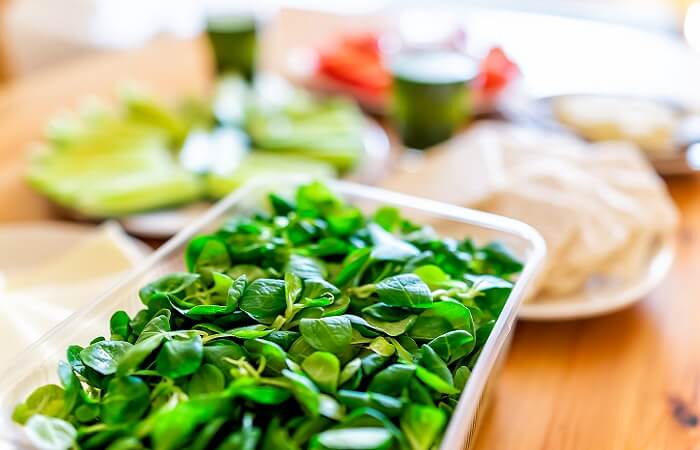Can You Tell If Your Salad Is Safe?
Unwelcome 'guests' in bagged lettuce might not be as rare as we'd like to think.
Unwelcome 'guests' in bagged lettuce might not be as rare as we'd like to think.

Life gets busy and anything that can save us valuable time can be a lifesaver. It’s no surprise bagged lettuce and salad kits have skyrocketed in popularity – almost 85% of households buy them regularly. These triple-washed, ready-to-go greens let us skip the drive-through and feel good about what we’re eating.
Bagged greens made the news this year, not to extol the virtues of eating healthy on the quick, but to warn us about bacteria and other contaminants that might be sealed in that convenient package.
Early in the year, there was a recall of bagged kale salad kits in the eastern U.S. and Canada linked to listeria contamination, a serious infection that can be especially dangerous to those with weaker immune systems. A few months later, a wide range of bagged salad and kits was recalled in 24 states after testing positive for salmonella.
This summer, researchers found that unwelcome “guests” in these kits may not be as rare as we’d like to think. They found an increase in incidents of frogs, lizards, snakes, mice and, in one report, a bat being packaged up with the greens. In many cases, these stowaways survived the processing and were very much alive when the package was opened.
Instances like this are relatively rare and there is no need for alarm or to avoid bagged greens, but it is important to understand that these issues can arise during harvesting, cleaning, packaging, storage and transportation. As a consumer, you can’t control all these steps, but there are things you can do to minimize potential risks.
September is National Food Safety month, so it’s worth reviewing what you can control when purchasing these greens and kits.
Check Before Buying
This is the first and easiest step you can take. Is the package damaged? Does it feel warm or heavy? Is there a lot of visible condensation inside? Do the greens themselves look pale, crushed, wilted or slimy? These are all signs that something is wrong. Don’t forget to check the expiration date, too. Buy greens as far out as possible from that date.
Look for packages that are free from moisture and cool like the case or shelf they’re stored in. Check for greens that are vibrant. Crushed, wilted greens are not only unappetizing, but the liquid they release can prompt bacterial growth.
Transport, Storage and Use
Once removed from the grocer’s case, the clock is ticking. Get the greens into your fridge as quickly as possible. Consider transferring them to a filtered plastic container made for greens or a large zip top bag with a paper towel inside. Both are good options to prevent wilting and control moisture. Eat your greens as soon as possible, within a few days. Even the best storage can’t stop deterioration over time.
This will also give you another chance to inspect your greens. If there is a strange odor, color, texture or contaminant, return it to the store.
To Wash or Not to Wash
It might seem redundant to wash your triple-washed greens yet again. While you can’t wash away bacteria, you can get rid of trace amounts of soil that may remain. Remember to do this before you eat your greens and not before you store them.
Finally, be aware of any recalls. The United States Department of Agriculture (USDA) and the FDA websites have recall information, but both also report through the consumer-friendly foodsafety.gov.
Eating healthy and serving our families nutritious food has become a priority for many Americans. Bagged greens and salad kits can help even the most time-challenged among us get on board. If you spare just a bit of the time saved to double check these items before you eat, you can stay ahead of potential food safety risks.
If you liked this post, sign up for a once-a-month digest of our best posts from Safety First.
With a century-long legacy, the National Safety Council is a global center for safety expertise. Let's work together to align resources. We look forward to learning about ways we can join efforts to expand safety everywhere!
There are no items in your cart